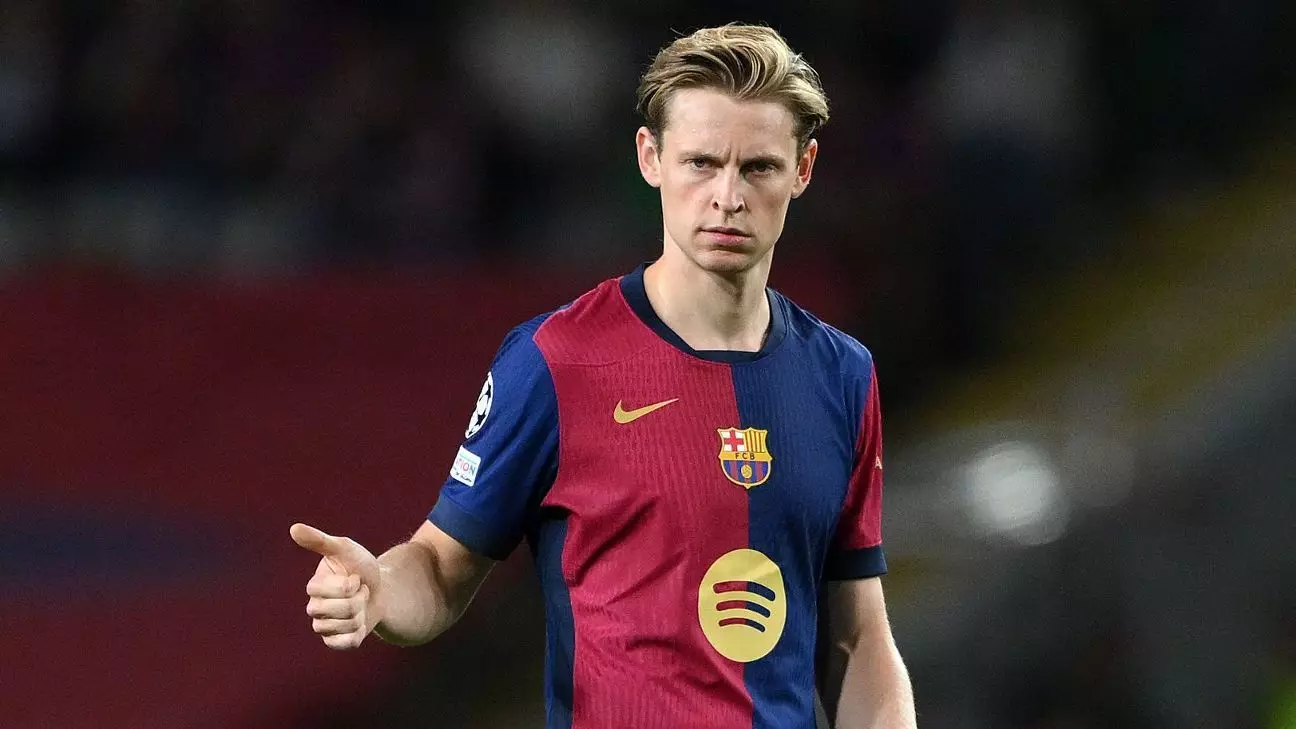The football world buzzed with enthusiasm this week as Frenkie de Jong made his emotional return to FC Barcelona after a grueling five-month hiatus due to a debilitating ankle injury. Following a series of setbacks that included missing both critical club matches and the European Championship, De Jong was finally back on the pitch to join his team during their Champions League encounter against Young Boys. This event marked a pivotal moment not only for the player but also for the team, which has been working hard to regroup and showcase their potential.
Entering the match in the 75th minute as a substitute for Lamine Yamal, De Jong’s reentry into the squad was not just a personal triumph; it was a significant psychological boost for both the player and his supporters. De Jong’s injury, sustained during a tense Clasico against Real Madrid back in April, had raised questions among fans and critics alike regarding his recovery process and the perception of the investment Barcelona made in the Dutch talent. The media’s scrutiny can be harsh, especially when expectations run high, and De Jong himself confessed that the time away from the game weighed heavily on his mind.
Speaking candidly after the match, De Jong shared his immense relief and joy to be back in action, emphasizing the importance of the fans’ warm reception. “I didn’t expect it,” he revealed, highlighting the uncertainty that often accompanies a player’s return to competitive play. The support from fans can be a powerful motivator, and De Jong’s thankful acknowledgment of this connection reflects his understanding of the broader dynamics at play in football culture.
The midfielder expounded on the current form of the team and conveyed a sense of optimism. He recognized the good momentum Barcelona has accrued since the season’s start and the collaborative effort needed to maintain and build upon that success. De Jong’s words, “We have to keep going now, keep improving and see where it takes us,” resonated with a commitment to both personal and collective growth, setting the tone for the challenges that lie ahead.
When delving into his role within the management structure under coach Hansi Flick, De Jong approached the topic with an open mindset. His willingness to adapt to whatever role he might need to fill indicated a mature understanding of team dynamics and the fluid nature of football strategy. “It depends on the coach,” he stated, showcasing his respect for leadership while emphasizing his dedication to giving his all, regardless of where he fits in the lineup.
Flick’s decision to gradually introduce De Jong back into the fold demonstrates a careful approach to player management that recognizes both the athlete’s history and the potential need for tactical adjustments. By substituting Ansu Fati earlier in the match, Flick strategically eased De Jong back into play, allowing him a chance to regain match fitness without overwhelming him so soon after recovery. This nuanced management speaks volumes about the growing understanding between players and coaching staff, crucial for maximizing team effectiveness.
Barcelona’s recent 5-0 win against Young Boys, where they showcased a well-rounded offensive effort led by prominent players like Robert Lewandowski and Raphinha, provides a promising outlook for the club. Such commanding performances elevate team morale and foster a winning mentality. The match victory stands as a testament to the strategies being instilled—important work credited to Flick’s coaching philosophy, which emphasizes aggressive defensive tactics and compact gameplay.
With a history steeped in excellence, returns like De Jong’s are not merely about individual performances; they symbolize the resilience required to contend effectively at the highest levels. As his role evolves and the season progresses, Freskie’s return presents numerous opportunities not just for himself, but also for Barcelona to solidify its stature in both domestic and European football.
Frenkie de Jong’s return is much more than a mere statistic; it is a defining moment in Barcelona’s ongoing journey. With the physical and psychological hurdles behind him, the midfielder’s future appears bright, and one can hope that this new chapter will lead to remarkable achievements for both him and the club he proudly represents.

